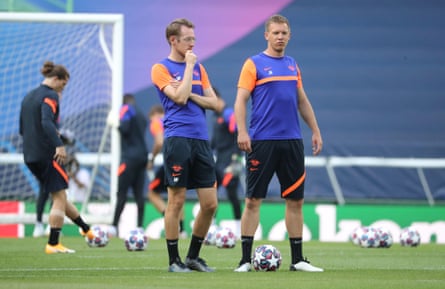In the world of professional football, data analysis has become an essential tool for teams looking to gain a competitive edge. While much attention has been focused on physical attributes and tactical performance, a growing number of clubs are now turning to artificial intelligence (AI) to analyze the psychological traits of players.
The technique, developed by former professional footballer Yaw Amankwah and psychology professor Geir Jordet, involves analyzing thousands of hours of match footage to identify key behavioral patterns in players. By using AI to process this data, they have created a dataset containing over 100,000 unique observations, allowing them to create a proxy ranking of players across different types of behavior.
How it Works
The analysis focuses on subtle, non-verbal cues such as body language, head movements, and hand gestures. For example, a player who receives a consoling pat on the back from a teammate after making a mistake may be demonstrating leadership qualities. By comparing these behaviors across players in the same position, clubs can gain valuable insights into a player’s emotional control, leadership abilities, and other psychological traits.
Adoption in Top Clubs
Several top Premier League clubs, including Brighton, have begun using this technology to inform their recruitment and team selection decisions. Max Pelka, a former psychologist at Bayern Munich, worked with Amankwah and Jordet to analyze the team’s players during the 2022-23 season. After each match, Pelka would summarize the detailed observations of each player’s psychological performance, providing the coaching staff with valuable additional information to consider when making selection decisions.
Future Developments
The use of AI in this field is still in its early stages, but the potential benefits are significant. As the technology continues to evolve, clubs will be able to analyze more teams and players, providing even more detailed insights into their psychological profiles. This could revolutionize the way clubs approach recruitment, allowing them to identify hidden gems and avoid potential pitfalls.



As the use of AI in football continues to grow, it’s clear that the beautiful game is entering a new era of data-driven decision-making. By gaining a deeper understanding of the psychological traits that drive player performance, clubs can make more informed decisions and gain a competitive edge in the pursuit of success.


